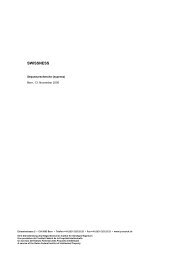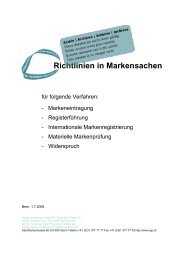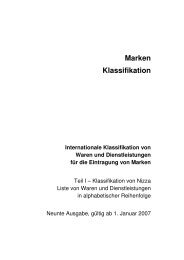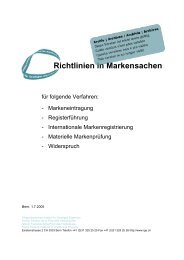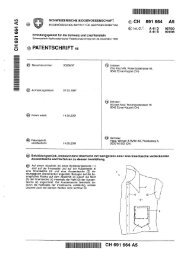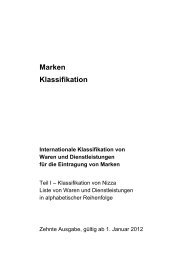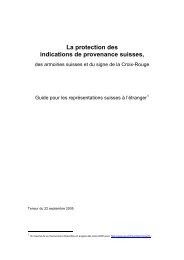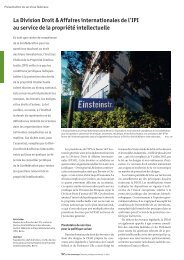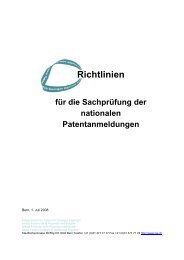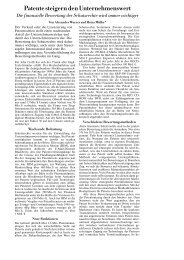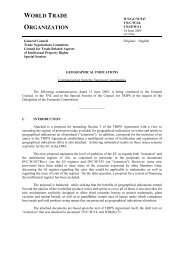AVIS DE DROIT PROTECTION DES SIGNES NATIONAUX
AVIS DE DROIT PROTECTION DES SIGNES NATIONAUX
AVIS DE DROIT PROTECTION DES SIGNES NATIONAUX
You also want an ePaper? Increase the reach of your titles
YUMPU automatically turns print PDFs into web optimized ePapers that Google loves.
ROYAUME-UNI<br />
such a way as to create confusion among consumers with the goods of the particular plaintiff<br />
manufacturer. Since the decision 310 of the Judicial Committee of the House of Lords, as<br />
ultimate appellate court for the United Kingdom, in respect of a fortified wine labelled as<br />
“advocaat”, it is now possible to invoke tort liability for such passing off on the basis that:<br />
- the plaintiff sells goods in England and Wales;<br />
- those goods belong to a class of goods which have an established trade reputation<br />
and are known by a particular trade name among British consumers;<br />
- continuing sales of that class of goods are sufficient to create a valuable “goodwill”<br />
attached to that trade name; and<br />
- the defendant’s misuse of that trade name, by applying it to goods which do not<br />
belong to that class of goods, has caused or is likely to cause substantial damage to<br />
the goodwill.<br />
It has become clear that goods manufactured in a particular country or region, such as Scotch<br />
Whisky in Scotland, can qualify as a relevant class of goods 311 . Damages for financial loss<br />
and injunctions to restrain further passing off may be granted as judicial remedies.<br />
4. Ayants droit des signes nationaux<br />
a) Ayants droit<br />
(i) National Insignia Used as Trademarks<br />
With respect to foreign national flags and notified State emblems, it is “the competent<br />
authorities” of the relevant foreign State that have the right to authorise or refuse to authorise<br />
their use in a trade mark registered in the United Kingdom; Trade Marks Act 1994, subsecs.<br />
57(1) and (2). Those authorities are not otherwise identified.<br />
No person or entity is designated as having the power to authorise the use in the United<br />
Kingdom of the flags of the United Kingdom or of its constituent jurisdictions. Any person is<br />
free to use those flags in unregistered trade marks and may businesses actually do so,<br />
especially when one or more of those jurisdictions qualifies to participate in the final rounds<br />
of the World Cup or the European Championship.<br />
Her Majesty has the right to authorise or refuse to authorise the use of the royal arms, flags or<br />
crown, as well as of any words, letters or other devices indicative of royal patronage, in a<br />
trade mark registered in the United Kingdom. Individual members of the royal family have<br />
the right to authorise or refuse to authorise the use of their images in trade marks registered in<br />
the United Kingdom.<br />
310 Erven Warnink BV v. J Townend & Sons (Hull) Ltd, [1979] Law Reports, Appeal Cases 731.<br />
311 Refer to Scotch Whisky Association v. JD Vintners Ltd, [1997] European Law Reports 446 and to the<br />
rest of the jurisprudence cited in the footnotes to Halsbury’s Laws of England, op. cit, Vol. 48, Title<br />
“Trade Marks and Trade Names”, para. 301.<br />
197



